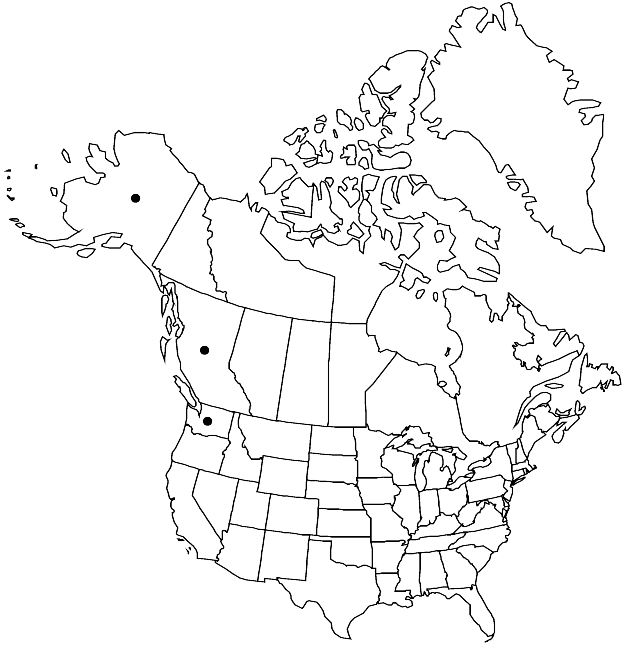Pseudoleskea atricha
Ottawa Naturalist 7: 20. 1893.
Plants large, in thick, stiff mats, green, yellow-green, orange-green, or black-green. Stems with branches robust, julaceous, apices curving up; central strand present; paraphyllia many, filamentous, not branched. Leaves appressed to julaceous when dry, erect-spreading when moist, dull, ovate, asymmetric, rarely somewhat falcate, (0.5–)1–1.2 mm; margins recurved proximally; apex gradually acute to rarely short-acuminate, hair-point absent; costa percurrent, green to yellow-green, somewhat sinuate; alar cells transversely elongate, quadrate, or short-rectangular, region medium-sized; medial laminal cells elongate-rhomboidal, to 40 µm, 3–4:1, opaque, distinctly prorate, walls incrassate, strongly pitted; juxtacostal cells usually shorter than medial cells, walls pitted or not. Capsule inclined to suberect, asymmetric, 0.5–1.2 mm; endostome basal membrane 1/3–1/2 exostome length, segments shorter than exostome, cilia well developed to occasionally rudimentary. Spores (10–)12–18(–20) µm.
Phenology: Capsules mature summer (Jul–Aug).
Habitat: Subalpine and alpine rock outcrops, mineral soil
Elevation: moderate to high elevations (600-2300 m)
Distribution

B.C., Alaska, Wash.
Discussion
Pseudoleskea atricha is a local high elevation endemic species characterized by ovate leaves with an acute but not acuminate apex, and incrassate laminal cells that are strongly pitted. Only P. baileyi also has strongly pitted cells, but it differs in having leaves with long acumina and hair-points, and stems lacking paraphyllia.
Selected References
None.